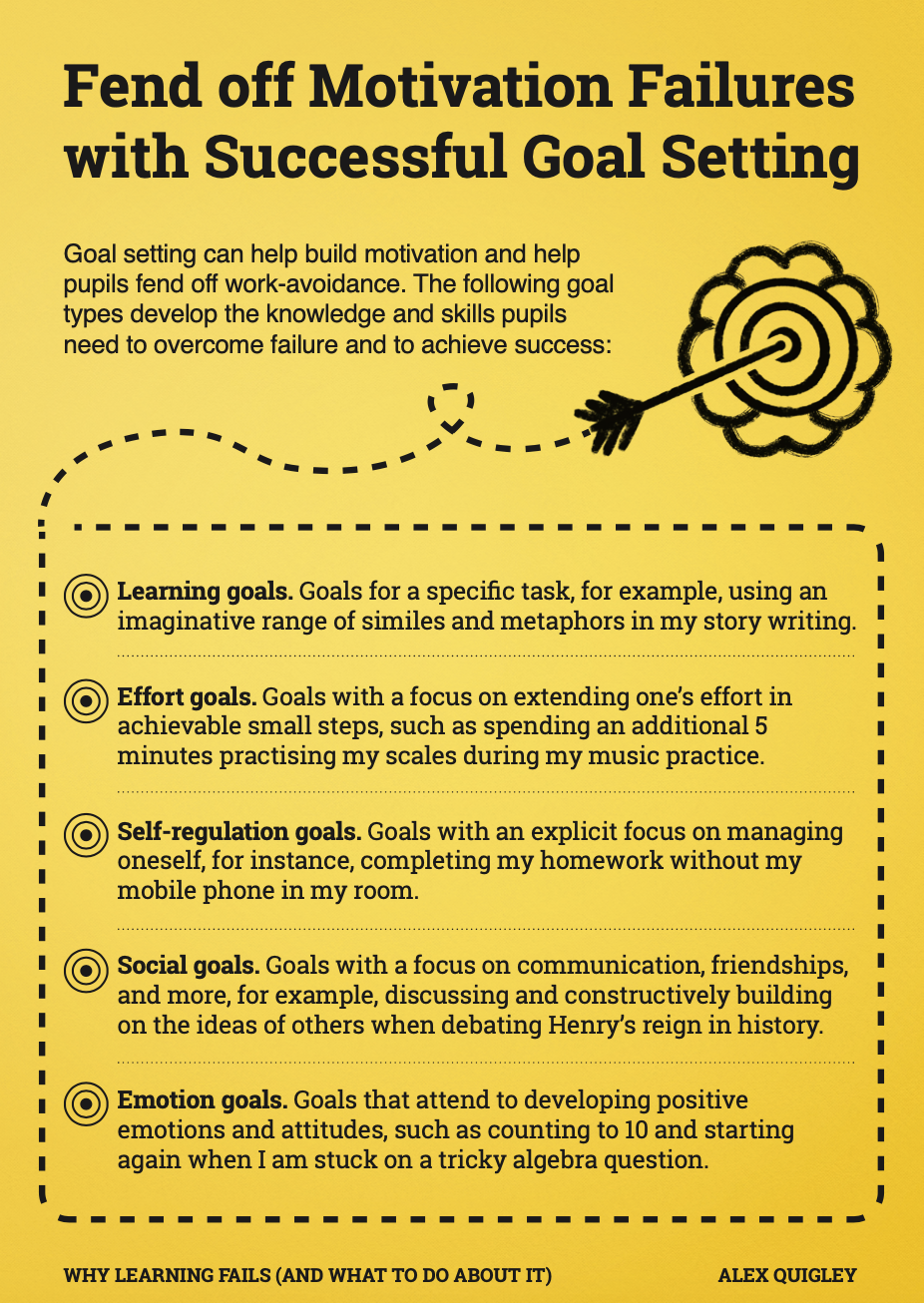How do we encourage reluctant children to successfully stick with a tricky task? How do we advise truculent teens to persist through a long and winding learning curve fraught with failure? These are the perennial questions we ask that are about how best to motivate learners to undertake the struggle needed to achieve learning success.
Helping pupils to set goals may be one of the best opportunities to motivate pupils to persevere through difficult tasks. It is no silver bullet, but if we can help pupils to look forward into the future – they may find more meaning in their current efforts – thereby seeing more value of persisting through their present struggles.
Stone cutters or cathedral builders?
In a 1954 book, Peter Drucker relays ‘The Parable of the Stonecutters’:
“While walking, a traveller came across three stonecutters and asked each of them what they were doing. The first replied, "I am making a living." The second kept on hammering and replied, "I am doing the best job of stone cutting in the entire country." The third stopped, looked up at the traveller with a visionary gleam in his eye, and said, "I am building a cathedral."
This tale of medieval cathedral builders helps capture that difficult task for teachers: helping their pupils finding meaning in often humdrum tasks. Novice pupils routinely fail to see the big picture. For example, pupils may know exams are valuable, but it is still hard to stick with revision when distractions abound. They cannot quite project into the future where the value of their persistence leads to their dream job.
Pupils need support to see their classroom stonecutting and how they may be building the cathedral that is achieving and succeeding in their dream job.
A more intentional approach to supporting pupils to set timely goals can go one small step to help them see their very own cathedrals.
We need to get specific and precise about different types of short- term goals that pupils can pursue (typically after lots of explicit instruction and modelling of goal setting). The following different goal types can develop the different knowledge and skills needed for pupils to succeed:
- Learning goals. Goals for a specific task, for example, using an imaginative range of similes and metaphors in my story writing.
- Effort goals. Goals with a focus on extending one’s effort in achievable small steps, such as spending an additional 5 minutes practising my scales during my music practice.
- Self-regulation goals. Goals with an explicit focus on managing one’s self, for instance, completing my homework without my mobile phone in my room.
- Social goals. Goals with a focus on communication, friendships, and more, for example, discussing and constructively building on the ideas of others when debating Henry’s reign in history.
- Emotion goals. Goals that attend to developing positive emotions and attitudes, such as counting to 10 and starting again when I am stuck on a tricky algebra question.
By repeating the likes of self-regulation and emotion goals in the classroom, pupils can gradually learn how to deploy them with independence too. Sticking with writing tasks in year 6 via carefully crafted goal setting can lead to later application of similar strategies, such as sustaining revision in year 11.
Of course, many of these goals interact with one another. Therefore, it is not easy to diagnose what goals will best trigger increased motivation for our pupils and what might fail. And yet, the more intentional teachers are about scaffolding goal setting the better.
It is entirely typical for a young novice pupil to have little sense of the cathedral they are building when they are in the classroom. We need to help them connect the foundations of school success to their future. We will need to help them see the cathedral standing before them.
This blog is adapted from my new book 'Why Learning Fails (And What To Do About It)'. You can find it on Amazon HERE and on Routledge HERE.
Not only that, I've developed free resources related to my book you can freely access on my resources page.







Comments